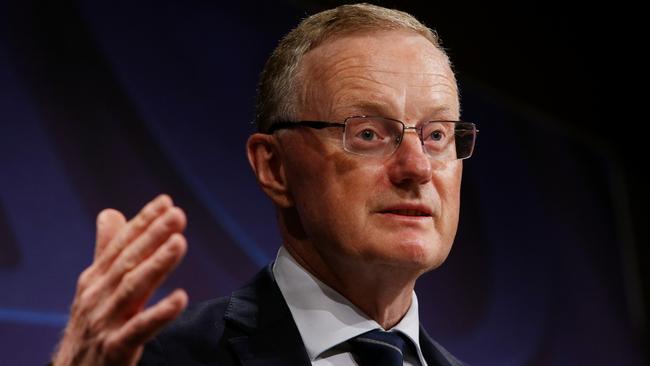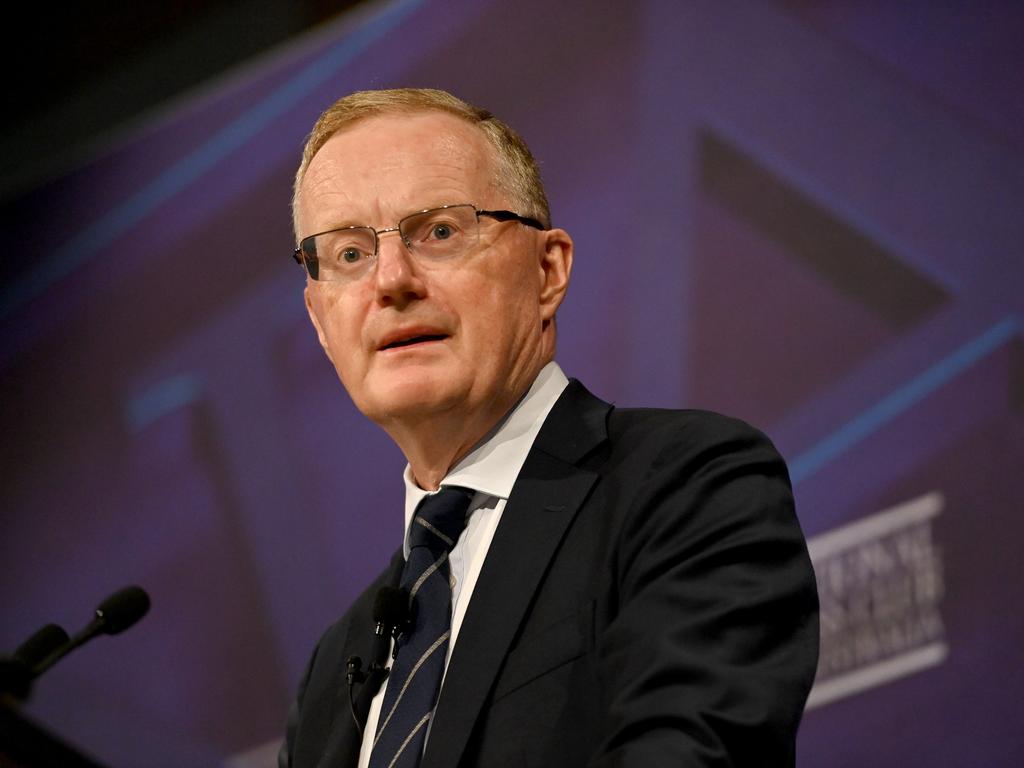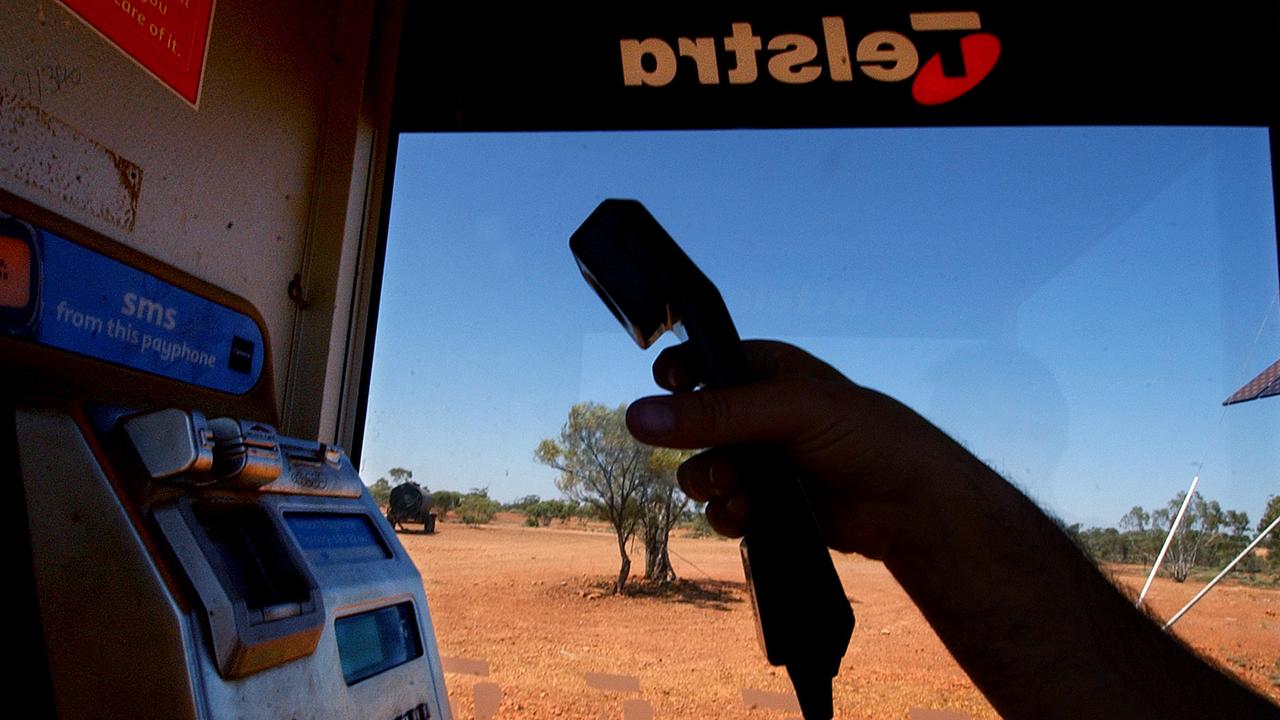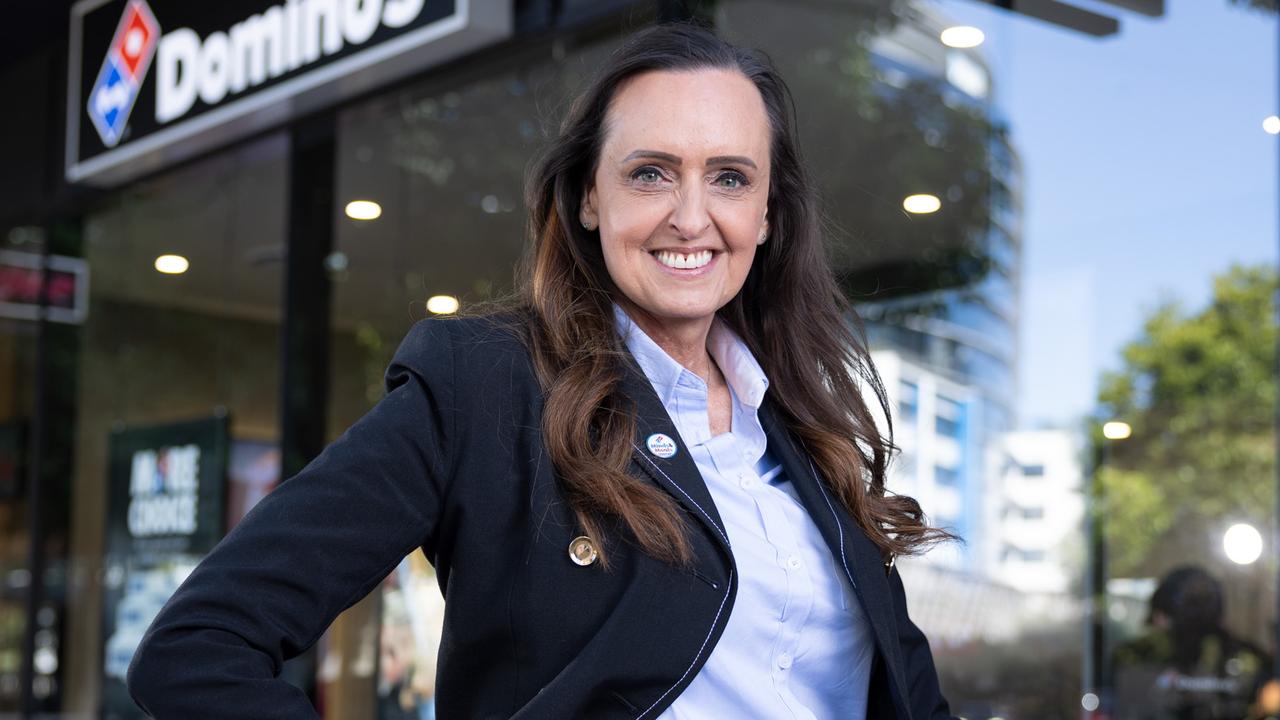RBA governor Philip Lowe starts to talk tough on inflation
War in Ukraine and sanctions on Russia have caused a ‘new supply shock’ which will extend the period of inflation being above central banks’ targets, according to the Reserve Bank.

Business
Don't miss out on the headlines from Business. Followed categories will be added to My News.
War in Ukraine and sanctions on Russia have caused a “new supply shock” which will extend the period of inflation being above central banks’ targets, according to the Reserve Bank.
While noting that Australia’s underlying inflation had only just reached the middle of the RBA’s target for the first time in seven years and hiking too early risked losing an opportunity to lower unemployment, RBA Governor Philip Lowe said there was “a risk in waiting too long, especially in a world with overlapping supply shocks and a high headline inflation rate”.
Continuing a slow shift away from guidance during the pandemic that the preconditions for rate hikes were unlikely to be seen “until 2024 at the earliest”, Dr Lowe told a Sydney business summit: “It is plausible that the cash rate will be increased later this year.”
Financial markets didn’t react since five rate hikes were already expected this year.
The S&P/ASX 200 rose 1 per cent, the Australian dollar crept up after suffering from risk aversion in global markets and Australian bond yields rose as inflation expectations boosted US Treasury yields.
Still, the RBA governor adopted inflation fighting rhetoric for the first time since the pandemic, noting that: “It is only possible to achieve a sustained period of low unemployment if inflation remains low and stable.
“Recent developments in Europe have added to the complexities here.
“The bank will respond as needed and do what is necessary to maintain low and stable inflation in Australia.”
Australia’s underlying inflation rate hit a more than seven-year high of 2.6 per cent in the December quarter as the pandemic stretched supply chains.
The Ukraine war and sanctions on Russia have added to inflationary pressures, with Brent crude oil up almost 70 per cent for the year to date, and east coast flooding is expected to push up food prices.
While Dr Lowe said that the pandemic was “not yet behind us” and the war in Ukraine was “a major new risk to the global economy”, he “sounded closer to raising interest rates than at any other time over the pandemic”, said Commonwealth Bank’s head of Australian economics, Gareth Aird.
Dr Lowe said that while the rise in commodity prices was a “negative shock for Europe that will cause a slowdown in economic activity” and push inflation higher, “Australia is in a different position” because it exports many of the affected commodities.
Still, rising petrol prices would “eat into household budgets, push up costs for many businesses and crimp spending in some areas” so “most of this extra national income will be saved”.
The supply shock from the war on Ukraine and sanctions on Russia and the prospect of an extended period of above target inflation globally “runs the risk that the low-inflation psychology that has characterised many advanced economies over the past two decades starts to shift”.
“If so, the higher inflation would be more persistent and broadbased, and require a larger monetary policy response,” Dr Lowe said.
“At the moment, financial market pricing suggests that CPI inflation will decline from its current high rates in the North Atlantic economies to around 2 per cent without real interest rates ever going into positive territory. A shift in inflation psychology would challenge this view, so this is a critical issue.”
The RBA is also watching domestic labour costs and while the latest data showed wage costs “remained modest”, with the Wage Price Index up 2.3 per cent last year, the national accounts measure of average hourly earnings “increased a bit faster than this at 3.3 per cent”.
“There are certainly pay rises that are much larger than 3 per cent taking place for some jobs, but the evidence is that most working Australians are still experiencing base wage increases of no more than 2-point-something per cent,” Dr Lowe said.
“This is also consistent with what we are hearing through our business liaison program.”
Still, the RBA’s focus on average hourly earnings “creates flexibility to raise the cash rate without being beholden to the WPI printing at a particular level”, according to CBA’s Mr Aird.
In his view, the RBA governor “made it crystal clear that the RBA do not need to see two further CPI prints before raising the cash rate”. When asked if the bank felt it was necessary to see two more CPIs before raising the cash rate, he said “we don’t have a plan”.
“This does not mean in and of itself that the RBA will raise the cash rate before August, by which two time further CPIs would have printed, but it does mean a rate hike is on the table before August,” said Mr Aird.
“Overall (the) speech and Q&A session left us very comfortable with our call for the RBA to commence normalising the cash rate in June.
“We expect the RBA to shift to a hiking bias at the May board meeting.”
National Australia Bank’s director of economics, markets, Tapas Strickland, concurred that “every meeting is possibly live after the April March quarter CPI and May’s WPI, if data surprises sharply and the RBA judges a high risk of inflation being sustained at too-high levels”.
“(The) speech suggests a shift in the balance of risks on inflation relative to their February forecasts,” he said.
“NAB’s view is that the RBA will start to hike rates from August 2022 and has pencilled in a 15 basis point increase, followed by 25 basis point rises in September and November, taking the RBA cash rate to 0.75 per cent by end 2022. By the end of 2024 we see the RBA cash rate at 2.25 per cent.”
Originally published as RBA governor Philip Lowe starts to talk tough on inflation





